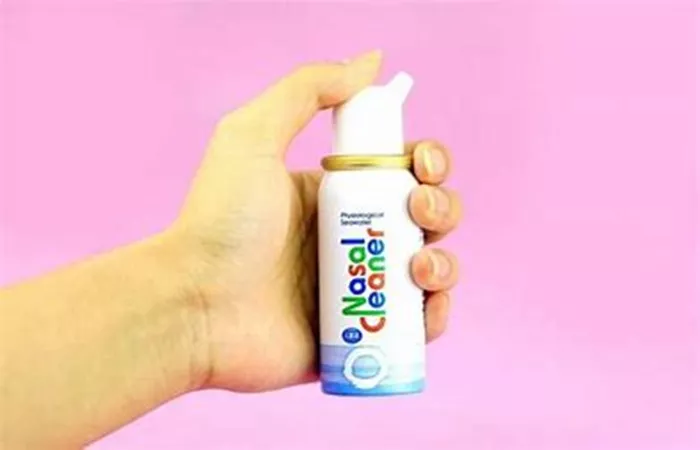Allergic rhinitis, commonly known as hay fever, is a prevalent condition that affects millions of individuals, causing symptoms such as sneezing, nasal congestion, itchy eyes, and runny nose. Effective management often involves using nasal sprays that provide relief from these symptoms. This article provides a comprehensive overview of the best nasal sprays for managing allergies, emphasizing safety and efficacy.
Understanding Allergic Rhinitis
Allergic rhinitis occurs when the immune system overreacts to allergens such as pollen, dust mites, or pet dander. Symptoms can range from mild discomfort to severe respiratory issues, making effective management crucial. Nasal sprays work by reducing inflammation and providing relief from symptoms like sneezing, itchy eyes, and runny nose.
8 Best Nasal Sprays for Allergies
Corticosteroid Nasal Sprays
Corticosteroid nasal sprays are highly effective in reducing inflammation and congestion caused by allergies. These medications can significantly reduce symptoms such as sneezing, runny nose, and nasal congestion.
1. Flonase (Fluticasone)
Form: Nasal spray
Effectiveness: Highly effective in reducing inflammation and congestion.
Safety: Generally safe for long-term use. Side effects may include nasal irritation and nosebleeds.
Best For: Individuals with moderate to severe allergy symptoms.
Side Effects: Nasal irritation, nosebleeds.
2. Nasonex (Mometasone)
Form: Nasal spray
Effectiveness: Effective in managing allergy symptoms.
Safety: Generally safe with minimal side effects. May cause nasal irritation.
Best For: Individuals with moderate to severe allergy symptoms.
Side Effects: Nasal irritation.
3. Rhinocort (Budesonide)
Form: Nasal spray
Effectiveness: Effective in reducing inflammation and congestion.
Safety: Generally safe for long-term use. Side effects may include nasal irritation and nosebleeds.
Best For: Individuals with moderate to severe allergy symptoms.
Side Effects: Nasal irritation, nosebleeds.
Antihistamine Nasal Sprays
Antihistamine nasal sprays provide rapid relief from nasal symptoms by blocking histamine receptors, reducing inflammation and itching.
4. Astepro (Azelastine)
Form: Nasal spray
Effectiveness: Provides quick relief from nasal symptoms, including congestion, sneezing, and runny nose.
Safety: Generally well-tolerated but may cause a bitter taste or nasal irritation.
Best For: Individuals who need fast-acting relief from nasal symptoms.
Side Effects: Bitter taste, nasal irritation.
5. Patanase (Olopatadine)
Form: Nasal spray
Effectiveness: Effective in managing nasal symptoms for up to 24 hours.
Safety: Generally safe with minimal side effects.
Best For: Individuals who need long-lasting relief from nasal symptoms.
Side Effects: Minimal side effects.
Decongestant Nasal Sprays
Decongestants provide rapid relief from nasal congestion by reducing swelling in the nasal passages. However, they should not be used for more than three days to avoid rebound congestion.
6. Afrin (Oxymetazoline)
Form: Nasal spray
Effectiveness: Provides quick relief from nasal congestion.
Safety: Should not be used for more than 2-3 days to avoid rebound congestion.
Best For: Short-term relief from severe nasal congestion.
Side Effects: Rebound congestion if used for more than three days.
7. Sudafed PE (Phenylephrine)
Form: Nasal spray
Effectiveness: Provides quick relief from nasal congestion.
Safety: Generally safe but may cause dryness in the nose and throat.
Best For: Short-term relief from nasal congestion.
Side Effects: Dryness in the nose and throat.
Saline Nasal Sprays
Saline nasal sprays help keep the nasal passages moist, preventing dryness and irritation. They are particularly useful for individuals with dry nasal passages.
8. Simply Saline
Form: Nasal spray
Effectiveness: Helps flush out allergens and reduce nasal congestion.
Safety: Generally safe with minimal side effects.
Best For: Individuals who prefer a non-medicated option for managing nasal symptoms.
Side Effects: Minimal side effects.
Practical Tips for Managing Allergic Rhinitis
Avoid Triggers: Minimize exposure to allergens and irritants that cause symptoms.
Use Proper Technique: Ensure proper use of nasal sprays to maximize effectiveness and minimize side effects.
Consult a Specialist: For persistent or severe symptoms, consult an allergist for personalized treatment options.
Stay Hydrated: Drinking plenty of fluids can help thin mucus and reduce congestion.
Use Air Purifiers: Adding moisture to the air can help alleviate dryness and irritation in the nasal passages.
Conclusion
Managing allergic rhinitis effectively requires the right choice of nasal spray based on your specific symptoms and needs. Corticosteroid nasal sprays like Flonase and Nasonex provide long-term relief from inflammation and congestion. Antihistamine nasal sprays like Astepro and Patanase offer rapid relief from nasal symptoms. Decongestant nasal sprays like Afrin and Sudafed PE provide quick relief but should be used short-term. Saline nasal sprays offer a non-pharmacological alternative for managing nasal symptoms. Always consult with a healthcare provider to determine the best treatment plan for your specific needs. With the right approach, you can manage your allergic rhinitis and improve your overall comfort.
Related topics:
10 Best Hypoallergenic Dogs for People With Allergies
21 Gluten-Free Snack Ideas for Your Kids
Baby Allergies: Symptoms, Causes, Treatment & More

